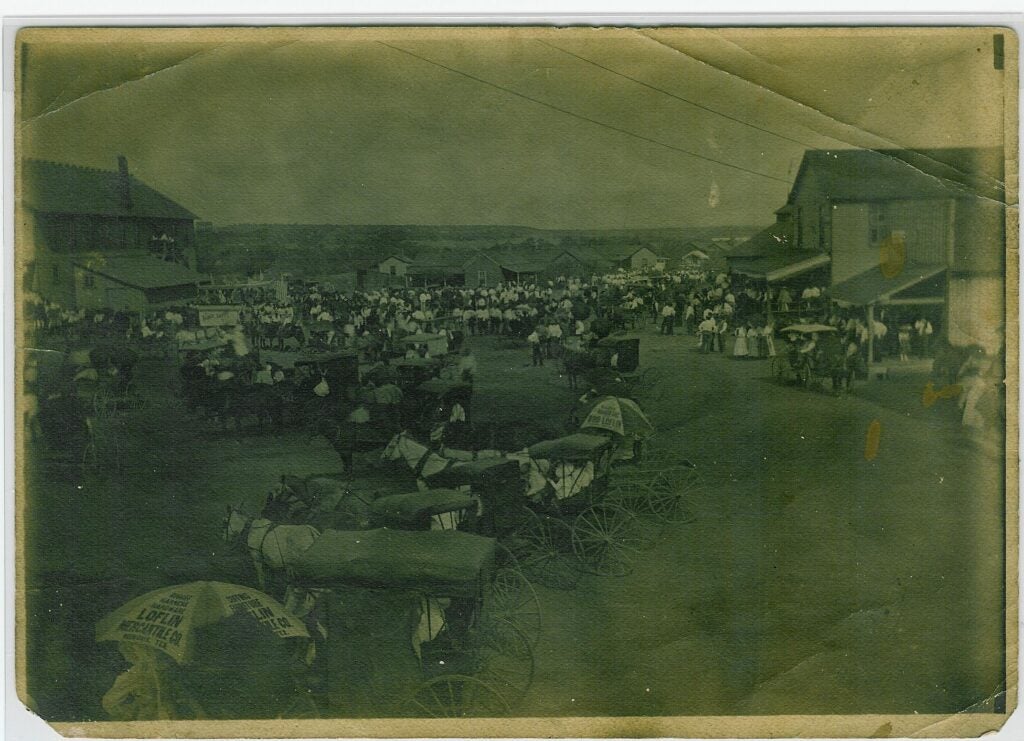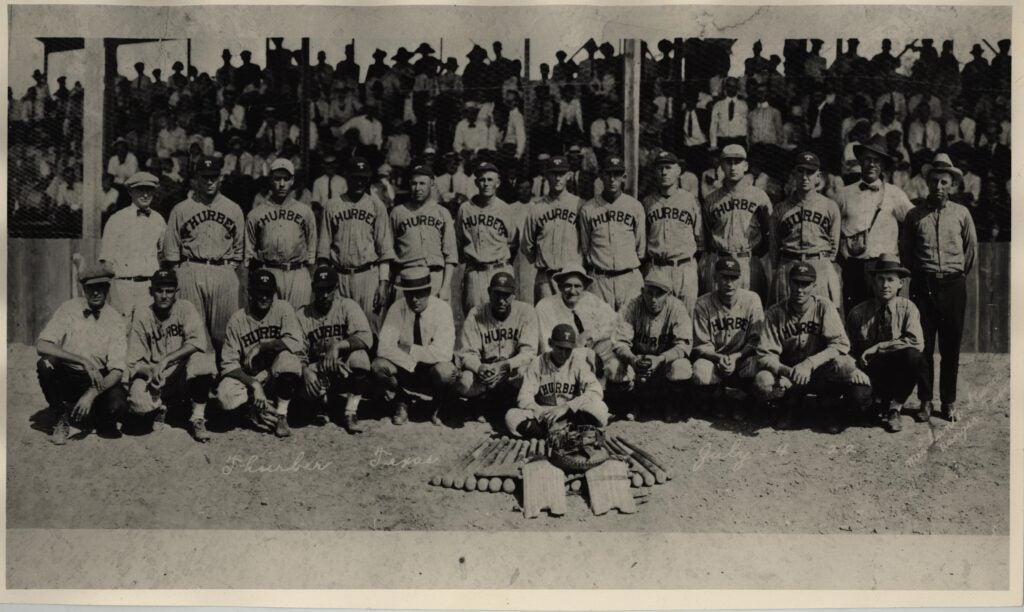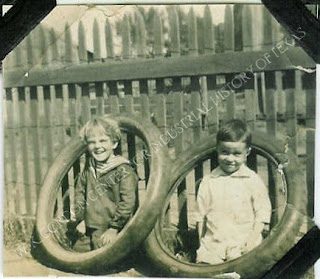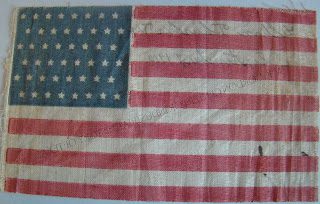The Glorious Fourth

By Mary Adams
The last Fourth of July celebration in Thurber occurred in 1937 after the town closed. According to an article printed in the Palo Pinto County Star in April of that year, plans were underway for a Jubilee Celebration in honor of W. K. Gordon on July 4th. The Texas and Pacific Coal Company was the host, and the day would include a “picnic-basket lunch and barbecue, ball games, and other entertainment” and they were expecting five thousand guests including current and former employees of the Texas Pacific Coal and Oil Co., former residents of Thurber, and former employees of the mines.
While this was Thurber’s last official July 4th celebration, it was not the only one held in Thurber either. Mary Jane Gentry referred to July 4th as a “Holy Day” in her Master’s thesis Thurber: The Life and Death of a Texas Town, which was later published under the title Birth of a Texas Ghost Town. Gentry goes on to give a general description of the day, starting with a parade that would have begun around the quadrangle and ended at the pavilion where there would be a picnic and the day would culminate with a dance.

Though it is difficult to pinpoint a date for the first July 4th celebration in Thurber, there is evidence to indicate that it was a regularly scheduled event. The June 30th, 1894, edition of The Texas Miner, Thurber’s newspaper, contains an article titled “We’ll all Celebrate” that outlines the plans for the Fourth of July celebration that begins with a free concert during the evening of July 3rd. “The Glorious Fourth” article published in the same paper on July 13th, 1895, started by claiming that “Thurber’s people have learned to look forward to the Fourth of July with greater anticipation for a royal good time, perhaps, than any of our sister burgs, because it is the custom of The Texas & Pacific Coal company to make just such arrangements for a holiday as its employees and their families will most enjoy, and with each successive year the events are, if possible, more enjoyable.”
Despite the evidence that the company hosted many of the July 4th celebrations, one newspaper account indicates that they did not host one in 1922. In 1921, the Thurber miners went on strike after the Texas & Pacific Coal and Oil Company tried to reduce their wages, and they remained on strike until the company closed all the mines and forced the miners out of their homes. In 1922, articles were published in several papers from the area where the Homer G. Harris American Legion Post, No. 14, held a “Benefit Water Carnival in Thurber.” According to an article in The Stephenville Tribune on June 16th, 1922, the day would include “swimming and diving contests, water polo games, a Bathing Beauties Review and many other interesting and exciting water stunts and contests and for the winners of the various events we will award many valuable prizes.”

Sadly, the availability of newspapers from Thurber is sporadic at best. During its fifty years, there were at least four different newspapers, and few editions have been saved. Therefore, tracking the holidays through the years can be challenging. However, we do not need to rely solely on newspapers; several oral interviews mention the celebrations. Lilly Gibson recalled her dad getting a wagon full of kids and taking them to the celebrations. She went on to say, “Mother would fix a big five-gallon can of fried chick and another one of teacakes, and that was our food, you see. When we’d get there, my dad would give each of us fifty cents to go buy us a soda pop, he called it.” Felicitas Salazar also recalls the July 4th celebrations. “I remember my father used to take me to the Fourth of July Celebrations at Thurber. That market there, back then –smokestack—that’s where they celebrate. I had a good time. Oh, had a lot of booths—sell food. Games. Just went and looked around and eat.”
Whether it was the first Fourth of July Celebration, the last, or one in between, whether the company or another group hosted it, what they all seem to have in common is that all who attended had a good time.



